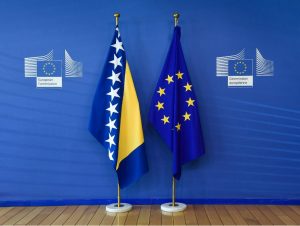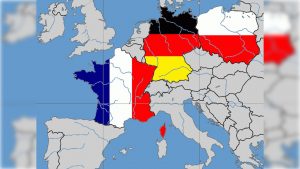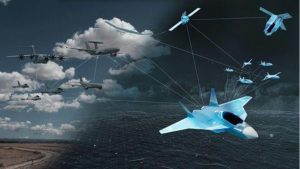On November 25, prime ministers of the Visegrad Four (Hungary, Slovakia, the Czech Republic, and Poland) met in Košice (Kassa), Slovakia, the country which currently holds the group’s rotating presidency. Top issues on the agenda were energy security, the war in Ukraine, illegal migration and economic recession. Even though several voices echoed the crisis of the alliance, the meeting showed that the Visegrad Group is still very important for all four countries in order to jointly stand up for their common interests, and lay down the foundations of cooperation where such joint actions are mutually beneficial.
The summit was eventually organised despite press reports that the event would be postponed or even cancelled. One week earlier, the parliamentary summit of the V4 countries was cancelled after the speakers of Czechia’s Chamber of Deputies and Senate, Markéta Pekarová Adamová and Miloš Vystrčil had decided to boycott a meeting with their V4 counterparts, which was to be held in Bratislava. The two Czech speakers argued that the Orbán government’s attitude is excessively conciliatory towards the Kremlin since the beginning of the Russian aggression against Ukraine. Markéta Pekarová, member of the governing TOP09 party, said that Hungary is ‘Russia’s Trojan horse’ and it is “important to send them a clear signal that this is unacceptable.” Earlier this year in March, a defence meeting of the group was called off after Poland and the Czech Republic pulled out over Hungary’s response to Russia’s war on Ukraine.
After a break of more than half a year, the V4 heads of government came together to discuss the war in Ukraine and related issues, the energy crisis, the protection of the external borders of the Schengen Area from illegal migration, and economic recession.
Russia’s war in Ukraine and the energy crisis
In the post-meeting statements the V4 allies stressed that they agreed on the fundamental issues of the war in Ukraine, including the need to preserve the territorial integrity of Ukraine, to end the war as soon as possible, and about the need to ensure that Russia does not pose a threat to Europe.
Mateusz Morawiecki, the Polish Prime Minister underlined: “Our position is clear. The war in Ukraine must end, with full respect for its independence and borders.” He also pointed out that the war would lead to further waves of refugees from Ukraine and called on the European Commission to take preliminary steps to deal with the wave of refugees and to provide more assistance to the countries concerned. Morawiecki, in relation to the energy crisis, told that the maximum gas price currently proposed is far too high, and accordingly the Visegrad Group, together with Spain and Greece, are calling for it to be lowered.
Petr Fiala, Prime Minister of the Czech Republic also emphasised that there was agreement on most substantive issues regarding Ukraine. He also addressed the energy crisis in the region. “We want energy prices not to affect our countries, we want to strengthen the resilience of energy systems and we want to get rid of Russian energy dependence,” he said.
Prime Minister Orbán stated that there is agreement on strategic objectives within the V4 regarding Ukraine and Russia, and Hungary will support and fund Ukraine so it can preserve its territorial integrity. In his statement after the meeting, Orbán said that Hungary supports the NATO membership of Finland and Sweden, and the Hungarian parliament will put this on its agenda for its first sitting next year. He also stressed that the Swedes and the Finns have not lost and will not lose a single minute in the accession procedure or of their membership because of Hungary.
Serbian-Austrian-Hungarian border protection cooperation against illegal migration
At a joint press conference following the negotiations Viktor Orbán highlighted that in 2022 Hungarian authorities stopped more than 250,000 illegal border crossings at our country’s southern borders, while the country has spent more than one and a half billion euros on border protection. He also said that they should expect migration pressure from the south to increase as well.
Viktor Orbán at the meeting informed his Slovak, Czech and Polish counterparts that Austria, Serbia and Hungary set up a new formation to help one another in defending the Schengen border in the south of Hungary. According to the Hungarian Prime Minister Serbian-Hungarian border cannot be defended any better than it is being defended now, therefore, the defence line needs to be moved further south to the border between North Macedonia and Serbia. To that end the three cooperating countries have concluded an agreement to mobilise troops, equipment and financial resources. Orbán said at the joint press conference that he asked his Visegrad colleagues to consider whether they can contribute to this border defence cooperation to which proposal he received a positive response.
The essence of V4: pursuing common interests
The Polish Prime Minister said after the meeting that the Visegrad partners do need each other. Morawiecki stressed that the V4 is united by common interests and is an important strategic cooperation that protects the Central European countries against other major interest groups. Morawiecki defended the V4 alliance on his Facebook page, too. „The Visegrad Group is a solid element of the European security structure. Recently, some people have only looked at us through what makes us different. We, on the other hand, came together to talk about what connects us, as the V4 is a very important forum for a comprehensive cooperation.” Orbán also explained that the Visegrad cooperation is a 30-year success story because these countries were convinced that they shared common interests and many common positions, which is also the case today.
All these statements coming from the heads of the governments of the Visegrad countries show that the V4 cooperation is indeed a crucial regional cooperation for all the concerned countries. However, the past ten months also showed that this cooperation should not be over-ideologized but much rather seen as a tool to enforce common interest through joint actions that are mutually beneficial for all countries. The Visegrad Group cannot and will not be a Central European political superpower with deep political cooperation in a wide circle of policy areas, especially because of the numerous disagreements within the group, but it can be and should be a strong regional cooperation based on the pursuit of mutual interests. Moreover, in certain policy areas this cooperation can even be widened as it seems to be happening in case of tackling illegal migration in Southern Europe.
Image: Miniszterelnok.hu






